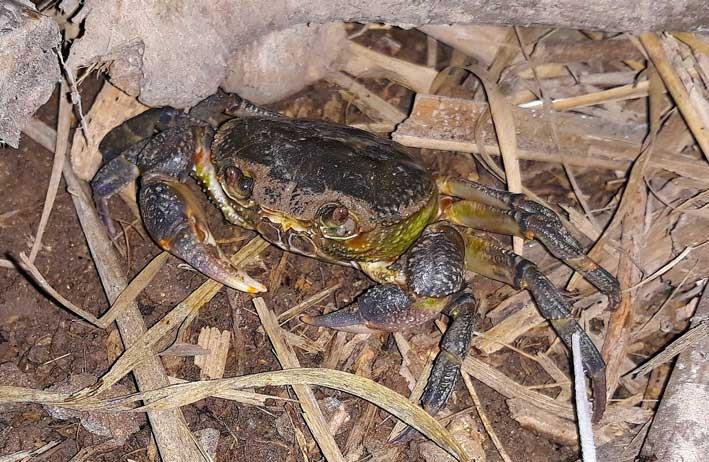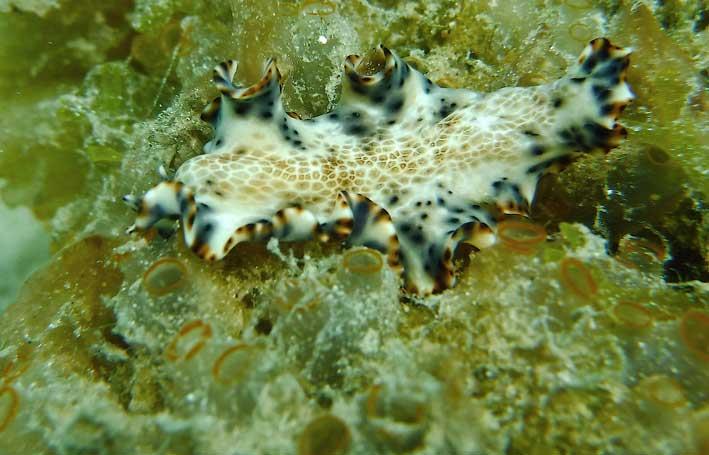The Conservation Biology Research Group at the Department of Biology, University of Malta (CBRG-UM) has over 25 years of experience in biodiversity research and awareness that has led to numerous discoveries and achievements.
Led by Prof Adriana Vella, diverse aspects of the species found on and around the Maltese islands have been elucidated together with the treats many of these creatures are facing. From freshwater crabs, insects, bats, hedgehogs, to reptiles (terrestrial and marine), dolphins, whales, fish and many other marine and terrestrial species, the CBRG-UM has paved the way to greater knowledge and awareness toward effective strategies for their protection using various research tools.
Some of the CBRG-UM's interesting terrestrial discoveries brought freshwater habitats to the fore with first scientific reporting of alien crayfish in certain locations in Malta since 2016. In other locations of the Maltese Islands, the same research group worked on the native freshwater crab population. This work included a first time analysis of the population genetic structure of this species, to find that it is fragmented into isolated pockets and in serious need of conservation management. Responsibly, the Ministry for the Environment and ERA have supported this project, that has been running for a number of years and providing valuable information to guide effective conservation action.

Similarly, in the marine environment diverse alien species have been and continue to be discovered side by side with native species with no few problems for survival of the latter and for availability of typical resources that form part of the goods and services these provide to us.
Some examples of invasive alien species already found include different species of pufferfish, the blue swimmer crab and the dusky spinefoot, while fascinating discoveries of native species led by the CBRG-UM include knowledge on whales, dolphins, sharks and rays, fish, jellyfish and many more through intensive field and laboratory work. From the first discovery of Fin whales in coastal Maltese waters to understanding seasonal patterns of species distributions and their genetic diversity.

Conservation research demands expertise in various scientific skills with many hours of research work but also collaboration with stakeholders. The CBRG-UM has been successful in this by involving the Armed Forces of Malta, Transport Malta, the Ministry for Environment, fishermen, scuba divers and other sea-users, together with the BICREF NGO and the interested public at large.
After 25 years it is possible to see the fruits of this work by the numerous scientific discoveries, from knowing more about our local endangered and vulnerable species to devising best methods to detect the different threats to these species and their habitats, such as from alien species, fragmenting and degrading habitats to pollution sources, including underwater noise pollution. Climate change is also impacting and changing biodiversity at an alarming rate.
The CBRG-UM has also taken the time to educate the public through its various documentaries, interviews and educational feature contributions through the many years of work. This was also possible by the interest taken by press and media to publish important and unique conservation research efforts, accurately.

Conservation work cannot afford not being successful as there is too much at stake. Conservation research at the University of Malta has also been able to progress through the awarding of the BioCon_Innovate Research Fund to Prof. Adriana Vella, encouraging more advancements in this necessary field.
The socio-economic value of healthy ecosystems and rich biodiversity cannot be underestimated. Increasingly economists are contributing surprising considerations themselves, such as the value of a single whale as being worth at least $2 million worth in ecosystem services. Additionally, a single whale with its long-life span may sequester carbon dioxide equivalent to 1500 trees thus massively help mitigate against the impacts of climate change. Equally the value of thousands of pollinating insects has been found to be worth over 15 billion Euros as contribution agriculture alone. The role of healthy ecosystems and resilient biodiversity has also been linked to mitigating against human health problems arising from nature under stress. From Stratospheric ozone depletion, to climate change to biodiversity loss, habitat degradation and ecosystem misfunctions are increasingly being linked with emerging diseases worldwide.
So even from an economic point of view funding research and management in conservation of biodiversity as our natural capital and natural heritage is in fact an important investment for future generations.
To know more contact: Prof Adriana Vella on WhatsApp 99429592 or email: [email protected]